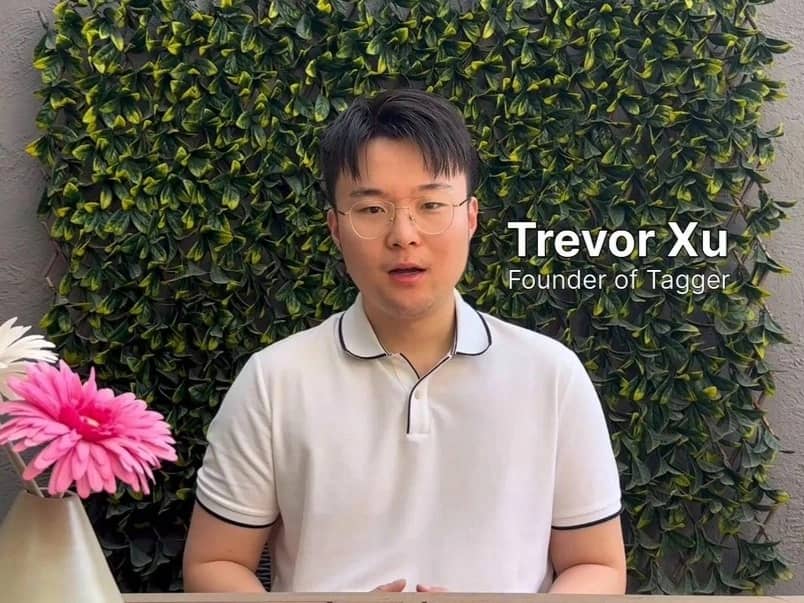위키 구독하기
Share wiki
Bookmark
Trevor Xu
0%
Trevor Xu
Trevor Xu는 인공지능(AI) 시스템을 위한 탈중앙화된 데이터 기여 및 협업에 중점을 둔 프로젝트인 Tagger를 만든 것으로 알려진 기술 창업가입니다. 그의 작업은 AI 개발을 위한 기존 기업 구조 및 데이터 수집 파이프라인의 비효율성과 불평등을 해결하기 위해 블록체인 기반 솔루션을 개발하는 데 중점을 둡니다. [5]
교육
Trevor Xu는 멜버른 대학교에 다녔으며, 2024년에 생의학 공학 학위를 받고 졸업했습니다. 그의 학문적 배경은 기술 분야에서 워크플로 설계 및 시스템 엔지니어링에 적용할 기술적 및 분석적 분야의 기초를 제공했습니다. [2]
경력
Xu의 경력은 2020년 MarsLadder에서 시작되었으며, 2022년까지 제품 운영 및 자동화 도구 개발 역할로 근무했습니다. 이 기간 동안 그는 고등학교 수학 강사로도 활동했습니다. 동시에 멜버른의 First Education Group의 시험 개발에 기여했으며 Perfect Ballers Association을 공동 설립하여 운영 활동을 지원했습니다.
2021년 Xu는 Singularity Labs를 공동 설립하여 Web3 공간으로 전환했으며, 2023년까지 프로젝트 운영에 집중했습니다. 이 신흥 분야에서의 그의 경험은 2022년부터 2023년까지 베이징의 FEDIMOSS에서 CEO 보좌관으로 근무하면서 보완되었습니다. 그곳에서 그는 워크플로 설계 및 기술 분석을 담당하여 운영 프로세스 최적화에 대한 전문성을 더욱 발전시켰습니다.
그의 관심은 2023년 홍콩에서 탈중앙화된 AI 인프라 구축에 전념하는 조직인 PrismX를 공동 설립하면서 탈중앙화된 AI로 구체적으로 옮겨갔습니다. 2024년 초, 그는 Surf Protocol의 파생 상품 플랫폼을 안내하는 고문으로 잠시 활동했습니다. 그 직후인 2024년 초, Xu는 그의 주요 벤처인 Tagger를 설립하여 데이터 처리, 인증 및 AI 중심 데이터 시장을 위한 탈중앙화된 솔루션 개발을 이끌고 있습니다. [3]
Tagger
Tagger는 AI 개발 수명 주기 내의 상당한 비효율성에 대한 대응으로 2024년 초 Xu에 의해 설립되었습니다. 이 프로젝트의 전제는 모델 혁신보다는 데이터 수집, 정리 및 레이블링에 대부분의 노력이 투입된다는 것입니다. Tagger는 비용이 많이 들고 느리며 제한적인 이점을 제공하는 중앙 집중식 파이프라인에 의존하는 대신 데이터 준비를 개방형 블록체인 기반 프로세스로 포지셔닝합니다. 참가자들은 허가 없이 데이터 작업을 기여하고, 암호화된 스토리지 및 온체인 인증을 통해 소유권을 유지하며, 작업이 검증되면 자동으로 보상을 받습니다. 이 모델은 투명성, 책임성 및 보안을 제공하는 동시에 보다 공정한 가치 분배를 창출하도록 설계되었습니다.
이러한 구조를 지원하기 위해 Tagger는 기업 계층 구조를 프로토콜 기반 작업 관리, 동료 및 AI 지원 평가, 스마트 계약 기반 결제로 대체하는 #DeCorp라는 탈중앙화된 협업 시스템을 홍보합니다. 기여자는 기존 자격 증명보다는 성과 지표를 기반으로 자율적으로 조직화하여 지리적 위치에 관계없이 참여할 수 있도록 하는 동시에 관리 오버헤드를 줄입니다. 이러한 접근 방식은 전 세계적으로 협업 노동력을 확장하고, 경제적 이익을 기여자에게 이전하고, 중앙 집중식 의사 결정 시스템에 대한 의존도를 줄이는 것을 목표로 합니다. [4] [6]
잘못된 내용이 있나요?
